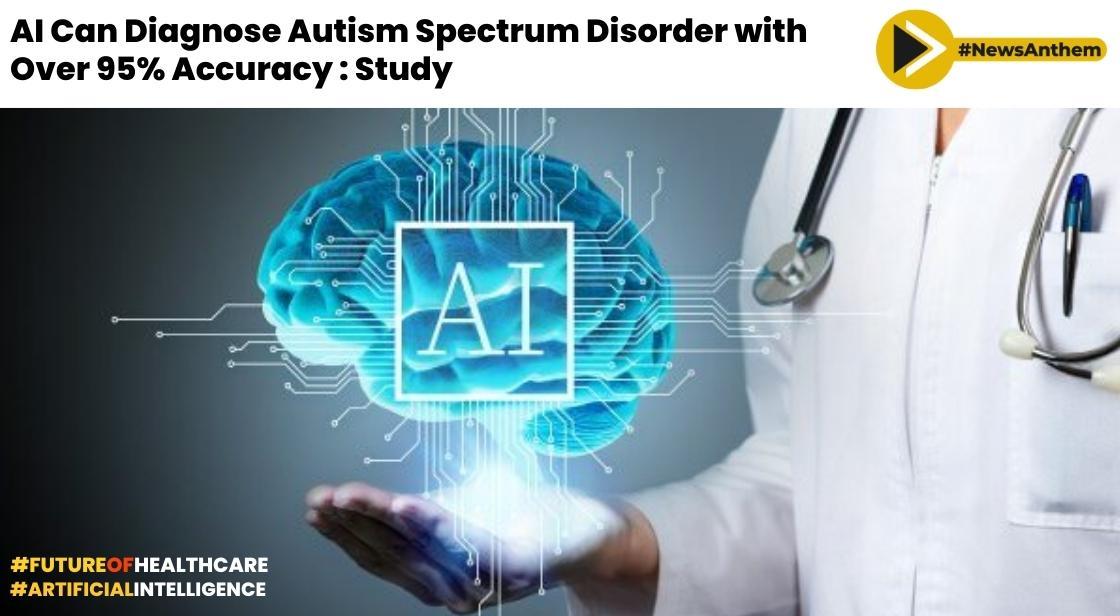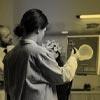AI can Diagnose Autism Spectrum Disorder with over 95% accuracy : Study

News Synopsis
Revolutionizing Autism Spectrum Disorder Diagnosis: Artificial Intelligence at the Forefront
Advancements in artificial intelligence (AI) continue to reshape medical diagnostics, with a groundbreaking study shedding light on the potential of AI in diagnosing autism spectrum disorder (ASD). The study, published in 'Scientific Reports', showcases the promising role of machine learning techniques in deciphering the complexities of ASD.
A Complex Challenge Addressed
Diagnosing ASD remains intricate due to its multifactorial nature and diverse range of symptoms. The University of São Paulo's Institute of Mathematics and Computer Science (ICMC-USP), in collaboration with researchers from Brazil, France, and Germany, embarked on a journey to revolutionize ASD diagnosis through innovative AI-driven methodologies.
Unlocking the Power of Brain Imaging Data
The study harnessed brain imaging data from 500 individuals, including 242 diagnosed with ASD. These intricate datasets were subjected to machine learning algorithms, opening doors to a new realm of diagnostic precision. Francisco Rodrigues, a professor at ICMC-USP, emphasized their approach: "We compared maps of people with and without ASD and found that diagnosis was possible using this methodology."
Innovative Brain Mapping
Unlike conventional methods, this study's innovation lies in its focus on brain network organization. By analyzing brain maps or cortical networks, the researchers unveiled vital insights into the connectivity of brain regions. These maps illuminate alterations in brain regions associated with cognitive, emotional, learning, and memory processes.
Unprecedented Accuracy
Machine learning algorithms, armed with these brain maps, achieved an astonishing accuracy rate of over 95% in identifying ASD-related brain alterations. This achievement underscores the potential of AI in decoding complex neurodevelopmental disorders.
A Glimpse into the Future
While the methodology is still in development, its potential ramifications are immense. The AI-driven approach promises to not only enhance diagnostic accuracy but also contribute to a deeper understanding of neurodivergences. Rodrigues shared, "Our study is an important step in the development of novel methodologies that can help us obtain a deeper understanding of this neurodivergence."
Beyond ASD: Expanding Horizons
The study's implications extend beyond ASD. Similar methodologies have exhibited promising results in diagnosing conditions like schizophrenia and Alzheimer's disease. The study's multidisciplinary team envisions a future where understanding brain alterations could revolutionize mental disorder treatments.
Tapping into Potential
Despite challenges like data collection and database size, this study ignites hope for more humane and effective treatments. As researchers explore correlations among mental disorders, the potential for cross-condition treatments and novel medications grows.
Collaborative Innovation
The study's interdisciplinary approach underscores the complexity of its subject matter. A diverse team of physicists, statisticians, physicians, and neuroscientists collaborated across borders to push the boundaries of medical diagnosis.
Conclusion
The fusion of AI and brain imaging data is propelling the field of medical diagnostics into uncharted territories. The pioneering study not only provides hope for accurate ASD diagnoses but also opens doors to understanding brain alterations that influence behavior.
As the methodology matures and expands, its impact on the broader landscape of neurodevelopmental disorders and mental health treatment is bound to be profound.
You May Like









